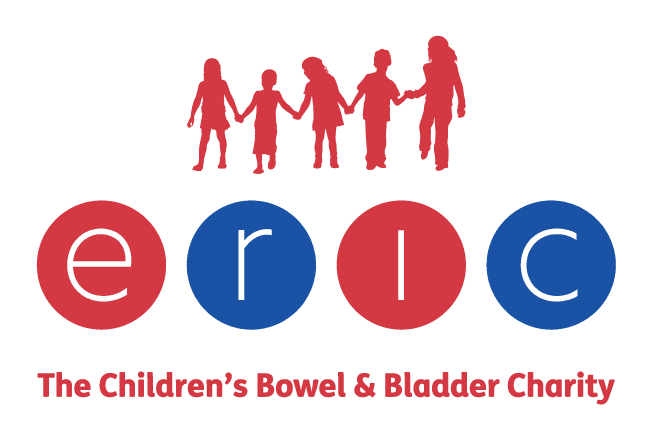<p><strong>المرحلة التمهيدية</strong></p>
<p><strong>رحلة طفلك إلى المدرسة تبدأ من المنزل.</strong></p>
<p>We understand that all children develop at their own pace, and that we're all learning from birth. When it's time to start school, some children will need more help than others.</p>
<p>There are key skills that schools expect children to be learning before their first day. Practicing these will make your child's journey to Reception as positive as possible.</p>
<p>إذا كان طفلك قد التحق بالروضة أو في مرحلة ما قبل المدرسة أو مع مربية، فإن هؤلاء المحترفين سيعملون معك ومع طفلك لمساعدته على الاستعداد للمرحلة التالية.</p>
<p>There's lots you can do at home to build your child's confidence and independence, helping them feel emotionally and practically prepared to start school.</p>
<p><strong>كيف يمكنني مساعدة طفلي في الاستعداد لها؟</strong></p>
<ul>
<li>Your child will have lots of new activities and routines to get used to when they start school. There are some things they'll need to do more independently than they might have before.</li>
<li>Research shows that a child's relationship with their parents is the most important factor in their development, and there's a lot you can do at home.</li>
<li>When your child is at home with you or another caregiver, you can practice as a family with fun activities (we've included links at the end of this resource).</li>
<li>Some of these skills take time to master, so it's good to introduce them gradually as part of your daily routine.</li>
</ul>
<p><strong>ماذا لو كان لدى طفلي احتياجات إضافية؟</strong></p>
<ul>
<li>If your child needs additional support to settle into Reception, make sure you share as much information as possible with their new teacher. They can work with you to find strategies to support your child.</li>
<li>Summer born children, or those speaking English as an additional language (EAL) may need more support.</li>
<li>If you know or suspect your child has suspected or confirmed special educational needs (SEND), developmental differences or delays, some of these skills may not be achievable for them at this point.</li>
<li>Early support makes a big difference – ask your child's nursery, school, health visitor, local children's centre or family hub for help.</li>
</ul>
<p><strong>من يمكنني التحدث إليه للحصول على المساعدة؟</strong></p>
<p>يحتاج جميع الأطفال إلى مساعدة من البالغين الموثوقين ليبدءوا المرحلة التمهيدية بحماس وثقة.</p>
<ul>
<li>Your childminder/nursery/pre-school team or your health visitor, children's centre or family hub can help if you need more information.</li>
<li>We've also put together a list of organisations and resources further down to help you and your child get ready together.</li>
</ul>
<p><strong>The definition: skills to practice before starting Reception</strong></p>
<p>New skills take time to learn. Practicing at home will help your child move into school more easily and with confidence.</p>
<p><strong>تنمية الاستقلالية</strong></p>
<p><strong>العناية بنفسه</strong></p>
<ul>
<li>Putting on/taking off their coat and shoes</li>
<li>Using the toilet and washing their hands</li>
<li>Getting dressed with little help, e.g. after using the toilet or doing PE</li>
<li>Using a fork/spoon and drinking from an open cup</li>
<li>Spending time away from you, learning they can be looked after by caring adults</li>
</ul>
<p><strong>اللعب، والإبداع، والفضول</strong></p>
<ul>
<li>Engaging in imaginative play (e.g. role play)</li>
<li>Drawing, painting, colouring and sticking</li>
<li>Sharing story books with caregivers, looking at pictures and talking about the characters</li>
<li>Exploring the world around them (e.g. looking closely at the natural world or playing safely with objects at home)</li>
</ul>
<p><strong>بناء العلاقات والتواصل</strong></p>
<p><strong>البقاء مع الآخرين</strong></p>
<ul>
<li>Practicing sharing and taking turns with toys</li>
<li>Talking to them about <strong>how</strong> they are feeling and <strong>why</strong></li>
<li>Looking at story books together and speaking about what characters are feeling is a good way to do this</li>
<li>Beginning to recognise what others are feeling, e.g. understanding if a friend is sad</li>
<li>Encouraging them to set boundaries for themselves and others (e.g. knowing how to say ‘no')</li>
</ul>
<p><strong>اللغة والتواصل</strong></p>
<ul>
<li>Singing along with songs and nursery rhymes</li>
<li>Talking happily to others about activities, experiences and the world around them</li>
<li>Showing they need help by speaking clearly (in basic English or sign language)</li>
<li>Recognising the pattern of their name (so they can find it on their coat peg or jacket)</li>
</ul>
<p><strong>الاستماع والمشاركة</strong></p>
<ul>
<li>Paying attention for short periods of time</li>
<li>Listening to and following simple instructions</li>
<li>Carrying on with a task even when it's difficult and bouncing back if things go wrong</li>
</ul>
<p><strong>النمو البدني</strong></p>
<p><strong>التحرك لمدة ثلاث ساعات على الأقل في اليوم</strong></p>
<ul>
<li>Walking up and down steps (one foot at a time, using the wall for support)</li>
<li>Climbing, running, jumping and playing</li>
<li>Catching a large ball (most of the time)</li>
<li>Doing simple puzzles and craft activities, strengthening their grip with cutting and sticking</li>
</ul>
<p><strong>الروتين الصحي</strong></p>
<ul>
<li>Going to bed around the same time each night, waking up in time to get ready for school</li>
<li>Limiting screen time to the recommended daily amounts (see advice)</li>
<li>Eating a healthy diet and trying new foods</li>
<li>Brushing their teeth with fluoride toothpaste twice a day (you'll need to supervise this until they are at least 7)</li>
</ul>
<p><strong>What should I do if I have concerns about my child's development?</strong></p>
<ul>
<li>If you're worried about your child's progress, talk to your childminder/nursery/pre-school team, health visitor, local children's centre or Family Hub.</li>
<li>If your child has developmental delays or SEND (suspected or confirmed), speak to their childminder/nursery/pre-school team well before they start Reception.</li>
<li>You can work with your child's early years setting to help your child with self-care, managing emotions, social skills, and communication in a way that suits their stage of development.</li>
<li>You might want to share details about their development, needs, what motivates them, what might trigger difficulties, how they learn best, and what strategies work well.</li>
<li>Make sure you share important information with everyone supporting your child, including their new Reception teacher.</li>
</ul>
<p><strong>الموارد للعائلات التي لديها احتياجات إضافية:</strong></p>
<p>هناك العديد من المنظمات التي يمكن أن تدعمك بالمعلومات والاستراتيجيات لإعدادك، وطفلك، وبيئته التعليمية، مما يضمن انتقالًا سلسًا ويهيئه لتحقيق النجاح في المستقبل.</p>
<p>تشمل هذه:</p>
<ul>
<li><a href="https://www.familylives.org.uk/">Family Lives</a></li>
<li><a href="https://speechandlanguage.org.uk/">Speech and Language UK</a></li>
<li><a href="https://dingley.org.uk/">Dingley's Promise</a></li>
<li><a href="https://www.kids.org.uk/">KIDS</a></li>
</ul>























